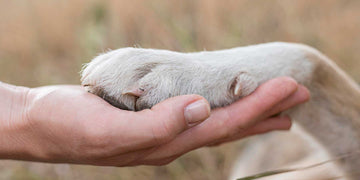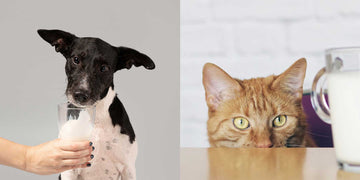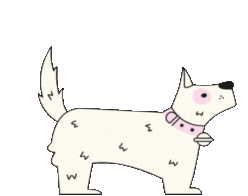As more individuals embrace sustainable living and compassionate choices, it's crucial to understand a major contributor to climate change, deforestation, and water scarcity: the global meat industry. Surprisingly, our beloved pets' diets play a significant role in this environmental equation.
The Alarming Scope of the Meat Industry's Environmental Impact
The statistics are stark. According to the UN’s Food and Agriculture Organization (FAO), the meat industry accounts for nearly 15% of global greenhouse gas emissions. That's more than all transportation emissions combined.
Here's a closer look at its impact:
-
Greenhouse Gases: Livestock farming is a primary source of methane, a potent greenhouse gas.
-
Deforestation: Vast tracts of land are cleared for animal grazing and to grow animal feed, driving widespread deforestation.
-
Water Depletion: The industry's water usage is alarmingly high. Producing just 1 kg of beef can require up to 15,000 liters of water, while 1 kg of chicken needs approximately 4,300 liters.
These profound impacts don't just harm wildlife and ecosystems; they accelerate global warming, worsen droughts, and disproportionately affect vulnerable communities worldwide.
How Pet Food Amplifies the Problem
A compelling 2017 study from UCLA revealed that pets in the U.S. consume roughly 25-30% of the total meat produced in the country. If global pet meat consumption were a country, it would rank fifth in the world for meat consumption.
In India, the pet food market is experiencing rapid growth, with a noticeable shift towards meat-based packaged diets. With over 30 million pets and counting, this escalating demand for conventional meat pet food adds immense pressure to India’s already strained agricultural and water resources. As one of the most water-stressed nations globally, India faces even greater challenges as meat consumption expands, not just for humans, but for our animal companions too.
This means our furry friends, through their food choices, significantly contribute to the environmental footprint of the meat industry. Opting for meat-heavy pet diets requires more land, water, and generates higher emissions, all of which could be drastically reduced with plant-based pet food alternatives.
Why Sustainable Pet Food Matters for Every Pet Parent
As responsible pet guardians, most of us strive to live more compassionately. However, traditional pet food often relies on by-products from factory farming; industries notorious for causing immense animal suffering and extensive environmental damage.
Switching to plant-based pet food can help you:
-
Reduce greenhouse gas emissions
-
Conserve vital water and land resources
-
Avoid supporting factory farming practices
Plant-Based Pet Food: Sustainable & Safe Nutrition
The good news is that high-quality vegan pet foods are readily available today and meet rigorous nutritional standards set by organizations like AAFCO and FEDIAF. Reputable brands such as Benevo and Ami formulate nutritionally complete options using diverse plant proteins, fortified vitamins, and eco-friendly production practices.
These sustainable pet food options boast a significantly smaller environmental footprint and do not rely on resource-intensive livestock farming.
Real Impact: The Power of One Switch
Imagine the difference just one change can make. Feeding a medium-sized dog a plant-based diet for one year can save:
-
3,300 kg of CO₂ emissions
-
830,000 liters of water
-
1,100 square meters of forest land
Source: Poore & Nemecek (2018), Science.
Simple Steps to Start Your Eco-Friendly Pet Journey
Ready to make a change? Here are some simple steps to get started:
-
Educate Yourself: Learn more about sustainable pet nutrition and its benefits.
-
Sample Smartly: Try vegan pet treats or mix-ins to introduce new flavors.
-
Transition Gradually: Introduce new food over 7–10 days to ensure a smooth transition for your pet.
-
Support Ethical Brands: Look for pet food companies committed to eco-conscious practices and transparent sourcing.
Our Choices Matter: A Call to Action for Pet Parents
The environmental cost of the meat industry is staggering, but it's not irreversible. As pet parents, we hold the power to make more responsible and compassionate choices for our beloved animals, for the health of our planet, and for future generations.
Explore Aistra’s curated collection of vegan pet foods and begin your journey toward a more sustainable lifestyle today.
Further Reading & Sources:
-
FAO (2022), “Livestock’s Long Shadow”
-
Okin, G. S. (2017), PLOS ONE
-
Poore, J., & Nemecek, T. (2018), Science
-
AAFCO and FEDIAF Guidelines
-
India Pet Food Market Insights (IBEF, 2023)
Have a story or a question about making your pet's lifestyle more eco-friendly? We’d love to hear it and potentially feature it on Real Pet Parents Reviews!





